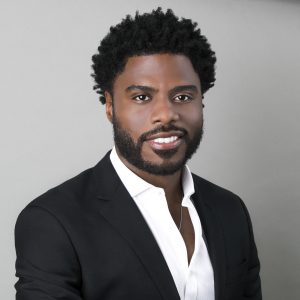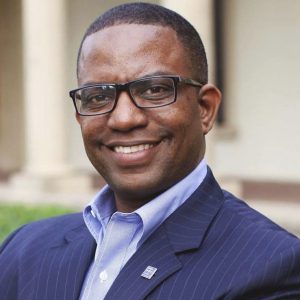

When Alex Harris was a child, he built his first drum set in the backyard of his home in Manchester, Georgia.
“I made my first drum set from the buckets in my neighbor’s backyard and the pine tree branches of our yard,” Harris said. “And my brother made his first guitar with rubber bands.”
Harris was homeschooled with his seven siblings, which sparked his passion for youth development through music, he said. He went on to earn his undergraduate degree from LaGrange College, a Master’s in Theology and Social Work from Boston University, and is currently working on his doctorate at Nova Southeastern University in Florida
“I really wanted to understand some of the most creative and innovative approaches that can be developed to engage today’s generation,” Harris said.
Harris and his business partner, Herbert Murphy, created a nonprofit youth program in Florida, called Arts Conservatory for Teens, which aims to teach middle and high schoolers life skills through the arts. He said as they learn drama and music, the students are also learning about leadership and skills to help guide them in solid career paths.
“They are learning the art of leadership and entrepreneurship,” he said. “There’s this holistic approach for them to understand the opportunities around them and provide accessibility to those opportunities.”
At 3:30 p.m. Wednesday, August 21 in the Hall of Philosophy, Harris and Murphy will speak about the power of education through the arts in their lecture, “Building Bridges for Inclusive Success Through the Arts,” as part of the African American Heritage House Speaker Series.
Arts Conservatory for Teens, or ACT, is a before- and after-school program where students spend time in both meditation and workshops. They spend an hour before school in workshops that get them in the right headspace for school, with activities like acting out their best behaviors, along with other exercises.
“We bring a DJ, and it’s kind of like tailgating or a pep rally, if you will, centered around education and positive behavior before school,” Harris said.
ACT is different than other youth programs that most people are familiar with, he said.
“We take a holistic approach to learning,” Harris said. “We don’t confine the arts to the traditional understanding of performing and visual arts. … We expand that space to the art of leadership, the art of entrepreneurship and the art of financial literacy.”
After school, students spend two hours in their respective age groups learning about music, cinema, dance and other arts. Harris said through this program, he and his team are trying to change Florida’s education policies and “close the achievement gap.”
“There’s an art to tap into awakening the creativity of the human development,” Harris said. “We believe in creating space where there is opportunity for innovation.”
He said he endeavors to impact the next generation of professionals and help them get the education they deserve, and particularly change the mindset of success being an impossibility.
“If we could change the mindset, then we can believe that the future of that individual certainly is poised for the highest level of greatness,” Harris said.
He hopes to share with Chautauquans the effectiveness of the program and the future of education.
“One of the things that we’re going to be talking about will be a bit about what we have discovered to be effective when we’re looking at how we really bring change in a community,” Harris said.
Through education and sustainable programs, he said, the cycle of poverty can be broken. Harris said he implores Chautauquans to think about youth organizations with which they are familiar and think about how some youth programs can be more than just “something to do after school — that’s a temporary fix.”
“We know we have to (make) real change — it has to get to the root, and part of that is finding a model that works and then slowly start to integrate,” Harris said.




